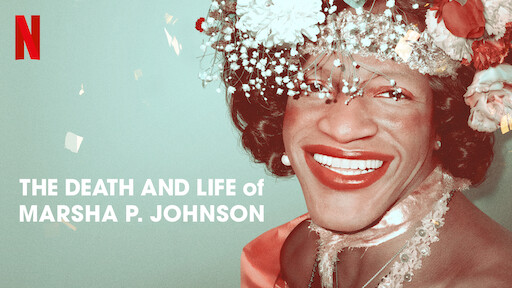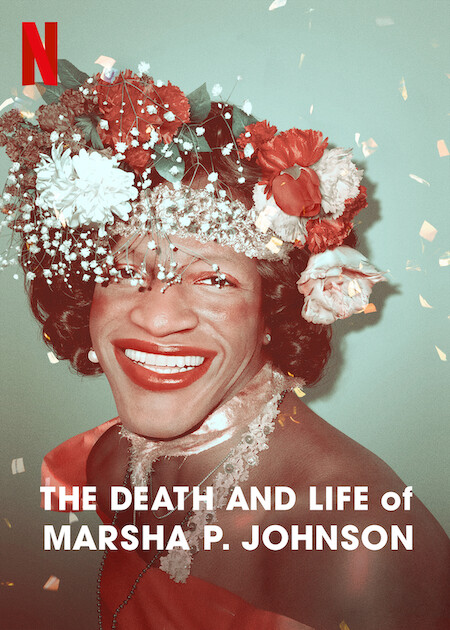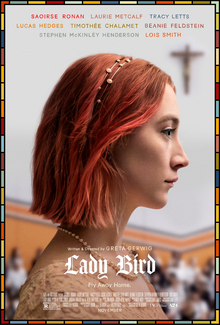

Reflecting on the theme of pride for this issue, I was reminded of my own explorations of the term as a teenager learning about the origins of Pride parades.
The Death and Life of Marsha P. Johnson documents the aftermath of the death of Marsha “Pay it no mind” Johnson, a transgender queen who was a major participant in the gay rights movement in 1970s America. Marsha’s death was sudden and unexpected, and while it was officially listed as a suicide, the LGBT community raised questions about the legitimacy of this claim. The documentary follows the efforts of Victoria Cruz, a transgender LGBT rights activist working within the Anti-Violence Project, to uncover the truth about the circumstances of Marsha’s death. Throughout the film, interviews with Marsha’s contemporaries are interspersed with clips of Marsha herself, along with other prominent members of the LGBT rights movement.
Across the documentary, it is obvious that Marsha had a profound impact on the lives of others. Interviewees recount how she empowered others to identify and express themselves as they pleased, her tireless activism, and her selfless tendency to give away belongings to those who admired them. Marsha’s most widely remembered contribution is her involvement in the Stonewall Riots, which kickstarted the LGBT rights movement in the US. These riots occurred when the Stonewall Inn, a Mafia-owned gay bar in Greenwich Village, New York, was invaded by police on the 28th June, 1969. Marsha is fabled to have thrown the first brick at the riots. She was also a major participant in the Pride parades which commenced in 1970, on the anniversary of the Riots, and a founding member of STAR (Street Transvestite Action Revolutionaries) alongside fellow activist Sylvia Rivera, an organisation who housed vulnerable homeless and transgender youth.
Whilst endeavouring to uncover the circumstances surrounding Marsha’s death, Victoria Cruz serves viewers with a poignant reminder that Marsha was potentially one of many members of the LGBT community who met a violent end. She briefly alludes to her own experiences of being harassed and attacked, discusses experiences of discrimination with other members of the LGBT community, and nods to the dozens of trans women who have been killed in recent years. Cruz and the Anti-Violence Project aim to support members of the community, and seek justice for those who were killed. However, the death of Marsha P. Johnson, along with so many others, remains shrouded in mystery to this day.
As a teenager watching this documentary, I was deeply inspired by the activism of Marsha P. Johnson, Sylvia Rivera, Victoria Cruz and so many others. The film served as a gateway for me to learning about queer history, about the power of protest, and about the progression of human rights movements across the ages. It elucidated the fact that the first Pride was a protest, and served as a sobering reminder that we still have many battles to fight, a detail that is easy to overlook in Western countries in an era of rainbow capitalism.
Directed by: David France
This movie is available on Netflix.

Reflecting on the theme of pride for this issue, I was reminded of my own explorations of the term as a teenager learning about the origins of Pride parades.
The Death and Life of Marsha P. Johnson documents the aftermath of the death of Marsha “Pay it no mind” Johnson, a transgender queen who was a major participant in the gay rights movement in 1970s America. Marsha’s death was sudden and unexpected, and while it was officially listed as a suicide, the LGBT community raised questions about the legitimacy of this claim. The documentary follows the efforts of Victoria Cruz, a transgender LGBT rights activist working within the Anti-Violence Project, to uncover the truth about the circumstances of Marsha’s death. Throughout the film, interviews with Marsha’s contemporaries are interspersed with clips of Marsha herself, along with other prominent members of the LGBT rights movement.
Across the documentary, it is obvious that Marsha had a profound impact on the lives of others. Interviewees recount how she empowered others to identify and express themselves as they pleased, her tireless activism, and her selfless tendency to give away belongings to those who admired them. Marsha’s most widely remembered contribution is her involvement in the Stonewall Riots, which kickstarted the LGBT rights movement in the US. These riots occurred when the Stonewall Inn, a Mafia-owned gay bar in Greenwich Village, New York, was invaded by police on the 28th June, 1969. Marsha is fabled to have thrown the first brick at the riots. She was also a major participant in the Pride parades which commenced in 1970, on the anniversary of the Riots, and a founding member of STAR (Street Transvestite Action Revolutionaries) alongside fellow activist Sylvia Rivera, an organisation who housed vulnerable homeless and transgender youth.
Whilst endeavouring to uncover the circumstances surrounding Marsha’s death, Victoria Cruz serves viewers with a poignant reminder that Marsha was potentially one of many members of the LGBT community who met a violent end. She briefly alludes to her own experiences of being harassed and attacked, discusses experiences of discrimination with other members of the LGBT community, and nods to the dozens of trans women who have been killed in recent years. Cruz and the Anti-Violence Project aim to support members of the community, and seek justice for those who were killed. However, the death of Marsha P. Johnson, along with so many others, remains shrouded in mystery to this day.
As a teenager watching this documentary, I was deeply inspired by the activism of Marsha P. Johnson, Sylvia Rivera, Victoria Cruz and so many others. The film served as a gateway for me to learning about queer history, about the power of protest, and about the progression of human rights movements across the ages. It elucidated the fact that the first Pride was a protest, and served as a sobering reminder that we still have many battles to fight, a detail that is easy to overlook in Western countries in an era of rainbow capitalism.
Directed by: David France
This movie is available on Netflix.



